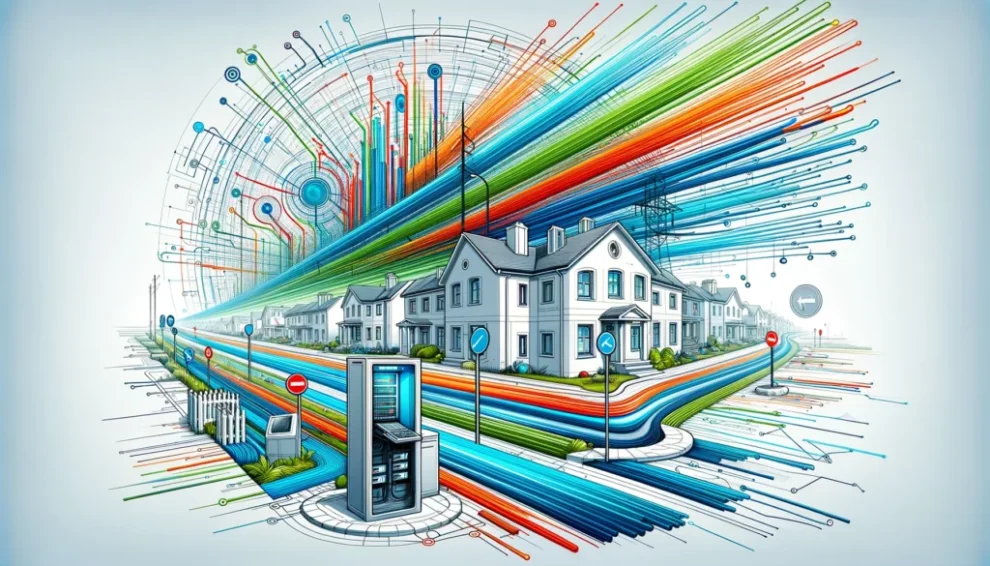While fiber internet offers numerous advantages, it’s not without its drawbacks. As with any technology, fiber optic internet has its limitations that users should be aware of.
Availability and Cost
- Limited Availability: Fiber internet is not yet available in all areas. Many rural and suburban regions may still rely on older technologies like DSL or cable internet.
- Higher Costs: Fiber internet can be more expensive to install and maintain compared to traditional broadband connections. This is due to the infrastructure costs associated with laying fiber optic cables.
Potential Service Disruptions
- Construction and Maintenance: Fiber optic cables can be susceptible to damage during construction or maintenance projects. This can lead to service disruptions and outages.
- Natural Disasters: Extreme weather events, such as hurricanes, tornadoes, or earthquakes, can damage fiber optic cables, resulting in service interruptions.
Vendor Lock-In
- Limited Choice: In some areas, there may be only one or a few fiber internet providers available. This can limit consumer choice and potentially lead to higher prices.
- Contractual Obligations: Fiber internet providers often require long-term contracts from customers. This can limit flexibility and make it difficult to switch to a different provider if you’re dissatisfied with the service.
Environmental Concerns
- Installation Impacts: The process of laying fiber optic cables can have environmental impacts, such as disturbing wildlife habitats and causing erosion.
- Energy Consumption: While fiber optic technology is generally more energy-efficient than traditional copper-based connections, the infrastructure required to support fiber networks can still consume significant amounts of energy.
Potential for Data Privacy Concerns
- Data Security: As with any internet connection, there is a risk of data breaches and privacy violations. It’s essential to take steps to protect your personal information and ensure that your fiber internet provider has strong security measures in place.
Balancing the Pros and Cons
Despite these potential drawbacks, fiber internet remains a highly desirable technology. Its unparalleled speed, reliability, and future-proofing capabilities offer significant benefits for both individuals and businesses.
The Importance of Informed Decision-Making
When considering whether to switch to fiber internet, it’s essential to weigh the potential benefits against the potential drawbacks. By understanding the limitations of fiber internet and making an informed decision, you can choose the best internet connection for your needs.
The Future of Fiber Internet
As fiber internet continues to expand, we can expect to see improvements in availability, affordability, and reliability. With ongoing technological advancements, it’s likely that the drawbacks associated with fiber internet will diminish over time.
















Add Comment